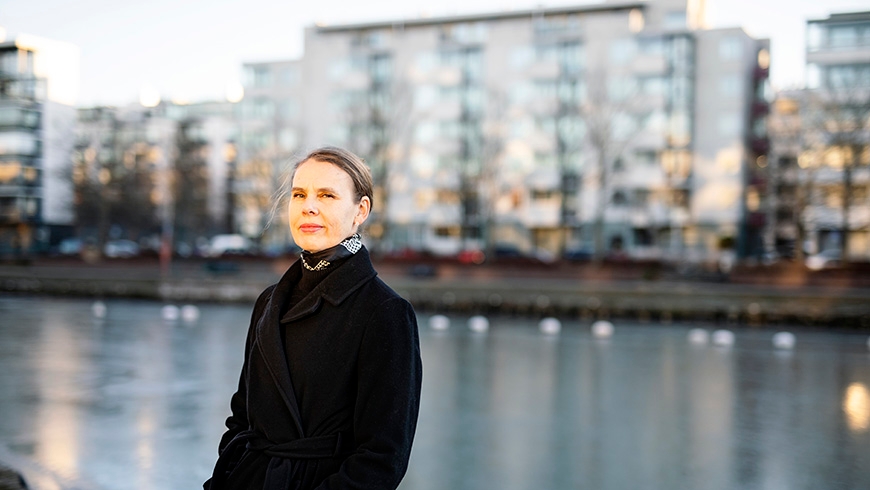
Ruoholahti health centre serves customers with multidisciplinary teamwork
The City of Helsinki is piloting the implementation of health centre services as an outsourced service at the Ruoholahti Health Centre provided by Mehiläinen. The aim is not only to provide top quality public healthcare, but also to learn on both sides.
On Tallberginkatu, right next to the Lauttasaari bridge, the residents of Ruoholahti, Jätkäsaari and Hietalahti are served by the completely new Ruoholahti health centre, which complements the Helsinki service network. There are 19,000 residents of Helsinki in the area, so there was a great need for public healthcare services that can be found nearby.
The healthcare services of the Ruoholahti health centre are provided by Mehiläinen. The new Ruoholahti health centre is part of the activities of Health Centre Mehiläinen, which currently comprises about 20 health centres around Finland.
- We have never purchased the services of a whole health centre from a private provider before. This is a big thing for the city, and we want to succeed, says Leena Turpeinen, Director of Health and Substance Abuse Services in Helsinki.
The Ruoholahti health centre is symbolically important to Mehiläinen, as it is a step towards closer cooperation with Helsinki, the hometown of Mehiläinen.
- Even though we have been in Helsinki for 112 years and have previously provided the city with public social care services, medical services for home care and staffing services for non-urgent dental care, we now have a public health centre operated by Mehiläinen for the first time, says Joonas Turunen, Director of Primary Healthcare at Mehiläinen.
New health centre, new operating model
The Ruoholahti health centre is an exceptional public health centre in many ways. Typically, municipalities outsource existing units, but the Ruoholahti health centre is a completely new unit. Mehiläinen has renovated the modern facilities of the new health centre and also recruited its staff. Ruoholahti health centre is piloting an new, multidisciplinary team work model, in which physicians, nurses, psychiatric nurses and physiotherapists work as one team.
- The multidisciplinary team always strives to solve the customer's service needs at the first contact, says Turunen.
The multidisciplinary team work model is seen as a key operating model for future primary healthcare with which the availability of care can be maintained at a good level. The City of Helsinki is familiar with the model, but so far it has been implemented at varying degrees in different health centres. Mehiläinen has gained experience with the multidisciplinary team work model from, for example, Harjun terveys joint venture in Päijät-Häme.
Although the Ruoholahti health centre has only been in operation for a few months, integration into the city centre’s health and well-being services network has started well. The results of the service have also been positive: the availability of services has remained at a good level, the net promoter score (NPS) has peaked and feedback from customers has also been positive.
Developing better services for residents of Helsinki together
According to Turpeinen, it makes sense for services to be provided by a combination of various providers. Private providers concretely bring more skilled people to customer work: by getting more people to work in health centres, the availability of services will also improve and high-quality healthcare can be provided to the residents of the area.
However, the goal of the close cooperation between the City of Helsinki and Mehiläinen is much more than just providing high-quality healthcare services. Both parties want to learn from each other about health centre activities. According to Turpeinen, the City of Helsinki will closely monitor Mehiläinen’s performance.
- The idea is to pass on good practices to the activities of the public sector as well. We will make comparisons and identify what Mehiläinen does differently, says Turpeinen.
- Together with the city, we can develop the services provided to the residents of Helsinki and, in a best case scenario, improve access to treatment and develop operating models for other health centres, Turunen adds.
The pilot will run for four years, after which it is possible for the City of Helsinki to activate a two-year option. According to Turpeinen, the pilot's success will be evaluated throughout the outsourcing.
- The outsourcing is significant because it has far-reaching effects. If it goes well, it the possibility of continuation will be considered.